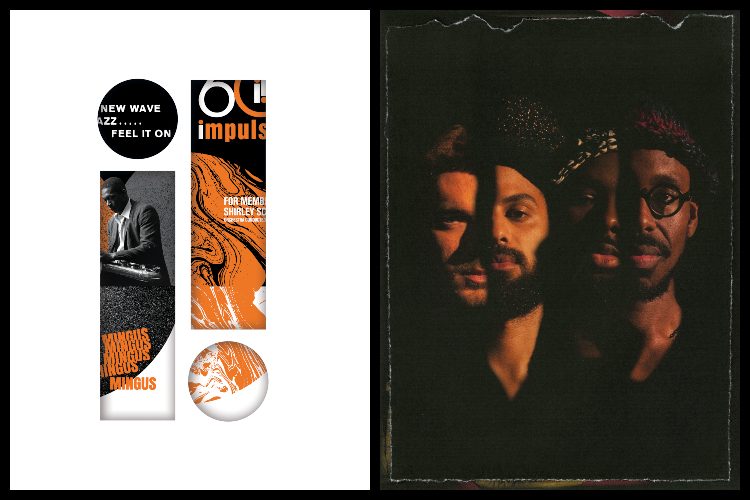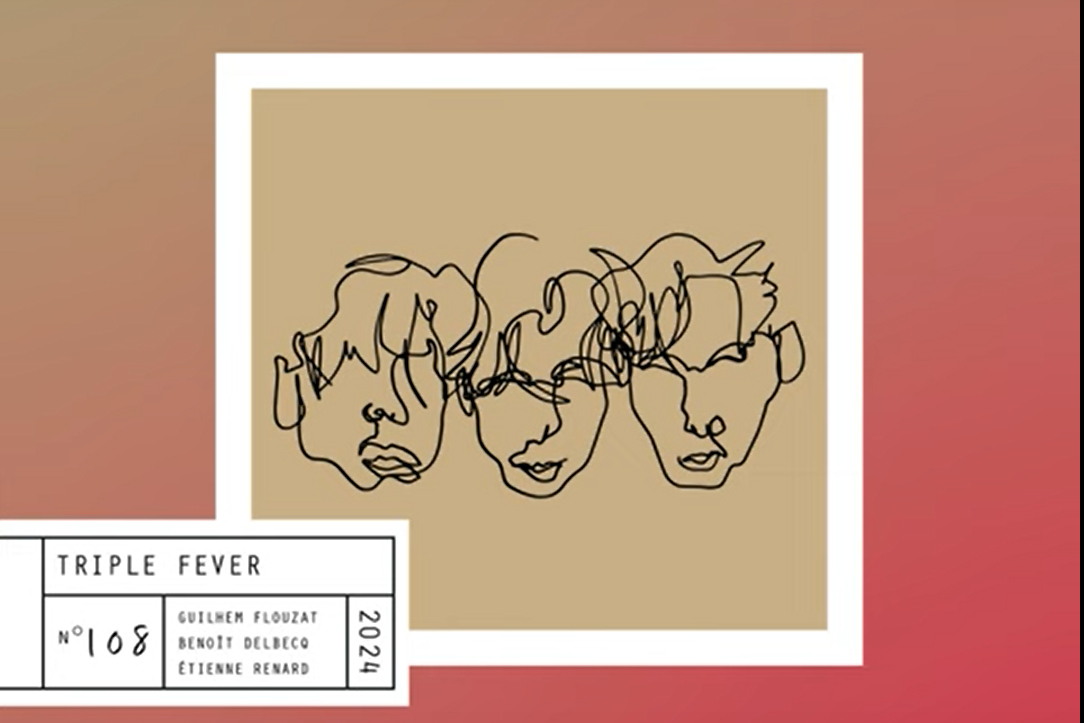Review: ‘Impulse! Records: Music, Message & The Moment’ and Sons of Kemet’s ‘Black to the Future’
|
Getting your Trinity Audio player ready...
|
In 1960, Creed Taylor founded Impulse! Records, which he dubbed “The New Wave in Jazz.” While over time, Impulse! established itself as one of the premier labels in the genre, it was always happiest around categorical edges. Ray Charles’ Genius + Soul = Jazz (Impulse!, 1960) blurred lines between the two styles. Later, Yusef Lateef – as he did throughout his career – borrowed ideas from across the globe. On Journey in Satchidananda (Impulse!, 1971), Alice Coltrane explored sounds born in North Africa, the Middle East, and India. With Interstellar Space (Impulse!, 1974), her husband pushed beyond the earth’s gravitational pull entirely. It is this transcendence that primarily guides the public perception of the label’s output. This view is understandable as some of Impulse’s most iconic recordings address spiritual matters. John Coltrane’s dedication to God, A Love Supreme (Impulse!, 1965), or Pharoah Sanders’ announcement of the Creator’s Master Plan (Impulse!, 1969), to name two. But it is a mistake to ignore the importance of worldly concerns as there is also a deep legacy of works that examine the political issues of the era. Impulse Records: Music, Message, & The Moment (Impulse!, 2021) and Sons of Kemet’s Black to the Future (Impulse!, 2021) both tap directly into this source.
The former is a thorough four-part thesis on Impulse’s socially conscious works over the past six decades. Several of the pieces are well known yet remain powerfully relevant years later. Trane’s mournful meditation on innocent lives lost on “Alabama.” The striving folkiness of Charlie Haden’s “We Shall Overcome.” The ebullience of Mingus’ “Better Get Hit in Yo’ Soul.” But the set also admirably presents some lesser recognized tracks from Impulse’s discography. Although a legendary figure, many often overlook Albert Ayler’s final album, Music is the Healing Force of the Universe, here represented by its title track’s raw emotional depths. There is also the sensitive beauty of Marion Brown’s Bismillahi ‘Rrahmani ‘Rrahim. Or the funkiness of John Handy’s “Hard Work.” And while Impressions (Impulse!, 1963) is one of Coltrane’s better-known albums, the blues of “Up ‘Gainst the Wall” generally is not listed among his most popular songs.
Music, Message, & the Moment is finely curated and mostly directs listeners to the label’s political overtones. But there is a problem: Pharoah Sanders. Or, more specifically, his magnum opus, “The Creator Has a Master Plan.” Most of these difficulties arise from the box set’s use of an edited version. While the logistical desire to truncate the 32-minute song is understandable, it is also shortsighted. If the artists wanted the piece to be less than ten minutes, they would have recorded it as such. Further, this box set is a premium item costing $140; it would not have been unreasonable for a buyer to expect the original in its full glory.
Instead, not presenting the full version out of personal taste is like someone deciding to slash off two-thirds of a Basquiat canvas to fit a Walmart purchased poster frame; while it may better match the room’s decor, it ruins the masterpiece. Particularly insulting is what precisely was cut from the song, specifically the last twenty minutes where a fairly harmonic melody leads into extended free improvisation of screeches and wails. If the beginning called for the implementation of the supreme blueprint, the remainder reflects on how far society is from that objective; an urgent cry for the yet unrealized dream. It is incredibly short-sighted for this particular boxset – one focused on social justice and equity – to only look at one half of the picture. It would be a mistake to allow this mistreatment of Sanders to mar the entire box set. But stop trying to blast your way through pyramids simply because a skyscraper seems more efficient.
Sons of Kemet’s Black to the Future was released the same day as the box set. Further, as Shabaka Hutchings notes, “Music can be likened to a time travelling vessel whereby cultural value systems of the past are encoded within sound and projected/protected throughout ages.” As such, it is appropriate to try to contextualize the album within Impulse’s history of politically focused recordings. As the saxophonist’s first album following the summer of 2020 – since the Black Lives Matters protests – his anger and frustration are palpable. This is particularly the case on “Field Negus” where references are made to a violent overthrow of the status quo (“Molotov cocktails as my banner… skull and crossbones as my skin tone”). References are made to minstrelsy (“I would have played the fiddle and tap-danced for you”), Treyvon Martin (“I would have settled for some skittles and a safe path home”) among others. A Tocquevellian analysis of history mostly leads to poignant reflection (“I do not want your equality. It was never yours to give me”). But occasionally also produces easy shots (“Leave Candace Owen by the plantation”) that could have been better expressed by substantive arguments. But the political importance is apparent regardless of form.
Other tracks likewise tap into this civil rights focus whether “Take Up Your Burning Cross” (“The crimes and lies of a ghetto enterprise”) or “Hustle” (“They took my n**** off the block and my negus off slave ships… you don’t need to pose and posture when you are born in the struggle”). “Black” is a searing criticism of police violence against people of color. Collectively, these songs fit well alongside earlier Impulse! recordings like Archie Shepp’s Attica Blues (Impulse! 1972).
But interestingly, significant portions of Black to the Future consist of instrumental pieces. Without lyrics, messaging is not as overtly obvious. However, even lacking words, these songs still present an urgency and immediacy aligned with the rest of the album’s offerings, confirming that sometimes the unsaid is just as urgent and moving as the spoken word. In terms of sound, the album is generally less “heavy” and frantic sounding than the band’s immediately preceding Your Queen is a Reptile (Impulse!, 2018). “Think of Hope” finds the bandleader on clarinet amidst a more subdued reggae dub, perhaps reflective of his upbringing in Barbados. “Let the Circle Be Unbroken” is a showcase for tubist Theon Cross that ultimately gives way to a gorgeous tenor solo. The grandeur of the sax gradually turns into shrieks and sputters- seemingly for the same reason Sanders used these effects but here not destroyed by editorial excess. “Envision Yourself Levitating” finds the quartet augmented by saxophonist Kebbi Williams and drawing a creative line between Ethio-jazz, calypso, and New Orleans brass bands.
While messaging is important, it is this mélange of sounds that most places Black to the Future within Impulse’s esteemed lineage. The band’s members draw upon influences from dub, hip hop, jazz, house, various Caribbean-based styles, and more, equal footing for the artists to better express themselves. Really, no different than was done with ideas from the East and Africa half a century ago. And, in this sense, the album is a great way to celebrate Impulse’s anniversary. While it does not include anyone who first made the label a powerhouse, it does reflect their essence, one that continues to guide artists today.
Impulse Records: The Music, The Message & The Moment and Sons of Kemet’s Black to the Future are both now available.
Impulse Records: The Music, The Message & The Moment
Tracklist: LP 1, Side 1: 1. Africa. LP 1, Side 2: 1. Garvey’s Ghost; 2. Hard Sock Dance; 3. Up ‘Gainst the Wall; 4. Just Us Blues. LP2, Side 1: 1. Alabama; 2. Better Get Hit in Yo’ Soul; 3. Freedom Dance; 4. Sister Mamie. LP 2, Side 2: 1. Malcolm, Malcolm – Semper Malcolm; 2. Good Lookin’ Out; 3. Black and Tan Fantasy; 4. The Rights of All. LP 3, Side 1: The Creator Has a Master Plan (edit); 2. Reverend King. LP 3, Side 2: 1. The Awakening; 2. Music is the Healing Force of the Universe; 3. We Shall Overcome. LP 4, Side 1: 1. Blue Nile; 2. Astral Traveling; 3. Blues for Brother George Jackson; 4. Lament (Mankind). LP 4, Side 2: 1. Imani; 2. Bismilahi ‘Rrahmani ‘Rrahim; 3. Hard Work.
Personnel: LP 1, Side 1: 1. The John Coltrane Quartet (John Coltrane — ts; Booker Little — t; Britt Woodman — tb; Carl Bowman — euph; Don Corrado, Bob Northern, Robert Swisshelm, Julius Watkins — frh; Bill Barber — tu; Eric Dolphy — as, bcl, fl, arr; Pat Patrick — bs; McCoy Tyner — p; Art Davis, Reggie Workman — b; Elvin Jones — d); LP 1, Side 2: 1. Max Roach (Max Roach — d; Booker Little — t; Julian Priester — tb; Clifford Jordan — ts; Mal Waldron — p; Art Davis — b; Carlos Eugenio, Carlos “Patato” Valdes — perc; Abbey Lincoln — vcl); 2. Quincy Jones and his Orchestra (Quincy Jones — arr, cond; Al DeRisi, Freddie Hubbard, Thad Jones, Snooky Young — t; Billy Byers, Paul Faulise, Rod Levitt, Melba Liston — tb; Julius Watkins — frh; Jerome Richardson, Frank Wess, Phil Woods — as; Eric Dixon — ts, cl; Oliver Nelson — ts; Jerome Richardson — bs; Patti Bown — p; Milt Hinton — b; Bill English — d); 3. John Coltrane (John Coltrane — ts; McCoy Tyner — p; Jimmy Garrison — b; Elvin Jones — d); Elvin Jones/Jimmy Garrison Sextet (Elvin Jones — d; Jimmy Garrison — b; Charles Davis — bs; McCoy Tyner — p). LP 2, Side 1: 1. John Coltrane (John Coltrane — ts; McCoy Tyner — p; Jimmy Garrison — b; Elvin Jones — d); 2. Charles Mingus (Charles Mingus — b; Eddie Preston, Richard Williams — t; Britt Woodman — tb; Don Butterfield — tu; Eric Dolphy — as; Booker Ervin, Dick Hafer — ts; Jerome Richardson — bs; Jaki Byard — p; Walter Perkins — d); 3. Shirley Scott Trio (Shirley Scott — org; Thad Jones, Jerry Kail, Tom McIntosh, Jimmy Nottingham, Ernie Royal — t; Jimmy Cleveland, Quentin Jackson, Tom Mitchell — tb; Eddy Manson — harm; Mundell Lowe — g; Art Davis — b; Ed Shaughnessy — d; Joe Venuto — perc; Oliver Nelson — arr, cond); 4. Yusef Lateef (Yusef Lateef — shehnai, tamb; Richard Williams — t; Mike Nock — p; Ernie Farrow — b; James Black — d). LP 2, Side 2: 1. Archie Shepp (Archie Shepp — ts, recitation; David Izenzon — b; J.C. Moses — d); 2. Stanley Turrentine (Stanley Turrentine — ts; Shirley Scott — org; Ron Carter — b; Mack Simpkins — d); 3. Earl Hines (Earl Hines — p; Cat Anderson, Ray Nance — t, Lawrence Brown — tb; Pee Wee Russell — cl; Johnny Hodges, Russell Procope — as; Harold Ashby, Paul Gonsalves, Jimmy Hamilton — ts; Aaron Bell — b; Sonny Greer — d); 4. Oliver Nelson (Oliver Nelson — cond, arr with orchestra incl. Snooky Young — t; Jerry Dodgion, Jerome Richardson — rds; Phil Woods — as; Phil Bodner — eh; Danny Bank — bcl; Hank Jones — el clavinet; Don Butterfield — tu; George Duvivier — b; Grady Tate — d; John F. Kennedy — voice; strings); LP 3, Side 1: 1. Pharoah Sanders (Pharoah Sanders — ts; Julius Watkins — frh; James Spaulding — fl; Lonnie Liston Smith — p; Richard Davis, Reggie Workman — b; Billy Hart — d; Nat Bettis — perc; Leon Thomas — vcl, perc); 2. John Coltrane & Alice Coltrane (John Coltrane — ts, perc; Alice Coltrane — p; Pharoah Sanders — ts, perc; Jimmy Garrison — b; Rashied Ali — d; Ray Appleton — perc). LP 3, Side 2: 1. The Ahmad Jamal Trio (Ahmad Jamal — p; Jamil Nasser — b; Frank Gant — d), 2. Albert Ayler (Albert Ayler — ts; Bobby Few — p; Bill Folwell — el b [left channel]; Stafford James — b [right channel]; Muhammad Ali — d; Mary Maria Parks — vcl); 3. Charlie Haden (Charlie Haden — b; Michael Mantler — t; Roswell Rudd — tb; Bob Northern — frh; Howard Johnson — tu; Perry Robinson — cl; Gato Barbieri — ts; Dewey Redman — as). LP 1, Side 1: 1. Alice Coltrane (Alice Coltrane — harp; Pharoah Sanders — alto fl; Joe Henderson — fl; Ron Carter — b; Ben Riley — d); 2. Pharoah Sanders (Pharoah Sanders — ss; Michael White — vln; Lonnie Liston Smith — el p; Cecil McBee — b; Clifford Jarvis — d; James Jordan — perc); 3. Archie Shepp (Archie Shepp — ts; Clifford Thornton — ct; Roy Burrowes, Charles McGhee, Michael Ridley — t; Charles Greenlee, Charles Stephens, Kiane Zawadi — tb; Hakim Jami — euph; Marion Brown, Clarence White — as; Roland Alexander, Billy Robinson — ts; James Ware — bs; Walter Davis, Jr. — el p; Roland Wilson — el b; Beaver Harris — d; Ollie Anderson, Nene DeFense, Juma Sultan — perc); 4. Michael White (Michael White — vln; Cecil McBee — b). LP 4, Side 2: 1. Dewey Redman (Dewey Redman — ts; Ted Daniel — t; Jane Robertson — cello; Sirone — b; Eddie Moore — d, perc; Danny Johnson — perc); 2. Marion Brown (Marion Brown — as; Stanley Cowell — p; Anthony Davis — Fender Rhodes el p; Bill Braynon — celeste; Harold Budd — celeste, gong; Reggie Workman — b; Jimmy Hopps — cymbals; Allen Murphy — bells; Jose Goico — finger cymbals); 3. John Handy (John Handy — as, vcl; Hotep Cecil — el kbd; Mike Hoffman — el g; Chuck Rainey — el b; James Gadson —d; Eddie “Bongo” Brown — cga; unknown — vcl, handclaps).
Black to the Future
Tracklist: 1. Field Negus feat. Joshua Idehen; 2. Pick Up Your Burning Cross feat. Moor Mother and Angel Bat Dawid; 3. Think Of Home; 4. Hustle feat. Kojey Radical; 5. For The Culture feat. D Double E; 6. To Never Forget The Source; 7. In Remembrance of Those Fallen; 8. Let The Circle Be Unbroken; 9. Envision Yourself Levitating; 10. Throughout The Madness, Stay Strong; 11. Black feat. Joshua Idehen.
Personnel: Shabaka Hutchings (woodwinds); Theon Cross (tuba); Eddie Wakili-Hick (percussion); Tom Skinner (percussion).



